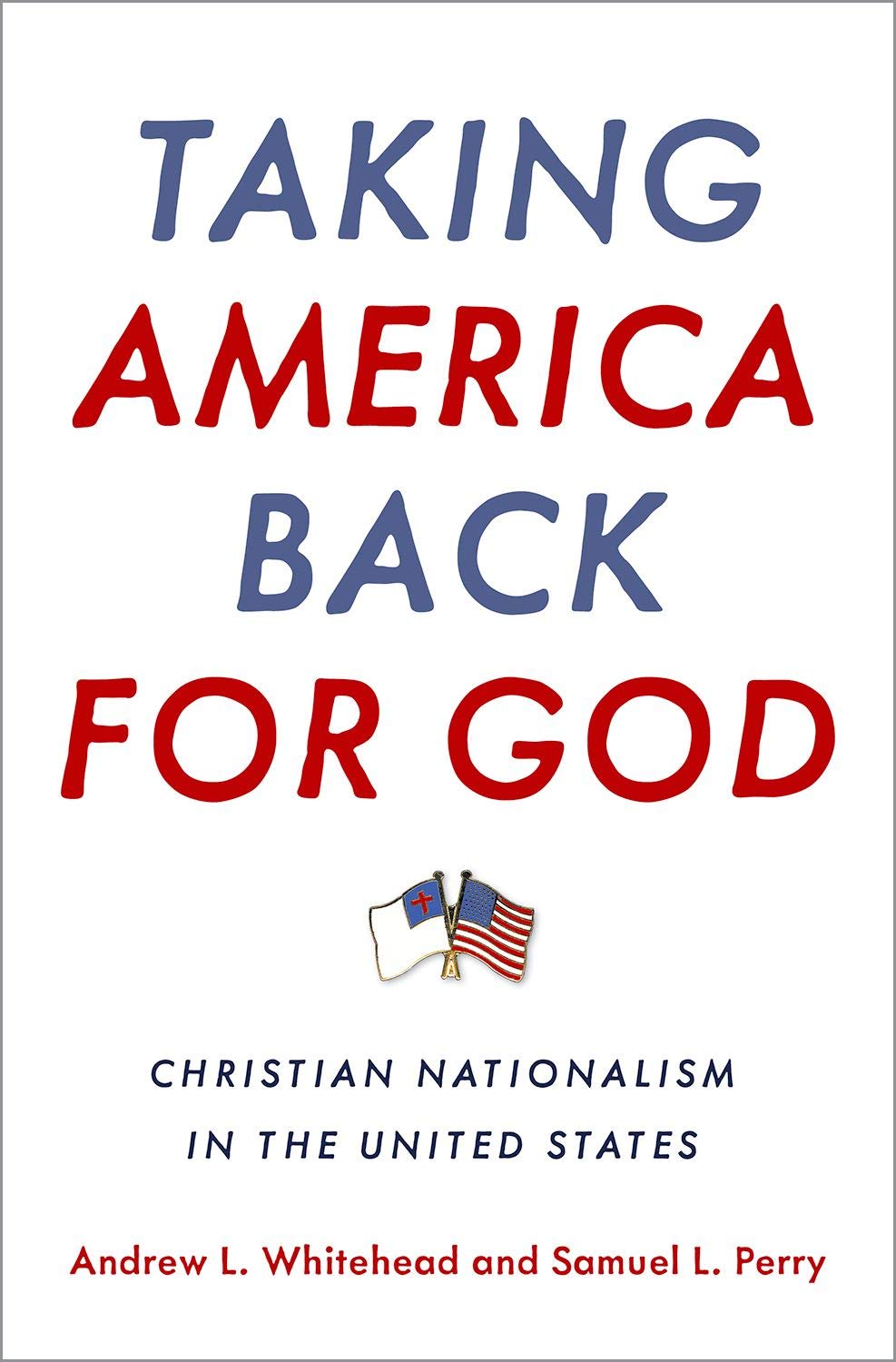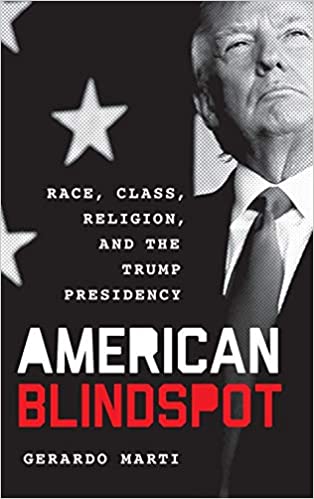In the mid-2000s, it was fashionable among journalists and academics to worry that America was on the verge of becoming a theocracy. Conservative white evangelicals had fueled the election of George W. Bush and helped turn Mel Gibson’s The Passion of the Christ into a box-office smash. They seemed poised for renewed political and cultural dominance. And so books and articles poured forth warnings about the peculiar dangers of “Dominionism,” “Christian Reconstructionism,” and various other movements conspiring to impose Christian beliefs on an unsuspecting populace.
This narrative came crashing down with the election of Barack Obama. Almost overnight, fears of America descending into a theocracy evaporated. Pundits began forecasting the death of the Religious Right, and the same evangelicals who had helped propel Bush to power spent the next eight years playing defense. More and more, they saw themselves not as ascendant governing partners but as targets of a crusading secularism.
And then Donald Trump broke everything. His surprising election, enabled in part by white evangelical support, reawakened fears that religious conservatives would mobilize underneath a theocratic banner. Margaret Atwood’s 1985 novel The Handmaid’s Tale, which imagines a fundamentalist dystopia where women are forced to breed, enjoyed a second life repurposed as a Trump-era cautionary tale (and a hit Hulu series).
Yet the idea of America descending into a genuine theocracy lacked the same surface plausibility it had during the Bush years. Though white evangelicals enthusiastically carried Trump into the White House, his lack of personal piety made him an unlikely candidate to preside over a thoroughly Christianized commonwealth. Nor, by and large, did his evangelical supporters mistake him for a godly statesman. Rather than King David, Trump was Cyrus, the pagan Persian emperor who, after conquering Babylon, allowed the Israelite captives to resettle in their homeland and rebuild the temple in Jerusalem.
Still, with Trump in office, the political fortunes of religious conservatives appeared to improve. This set the stage for a new journalistic and academic preoccupation: uncovering why white evangelicals flocked so fervently to Trump. The books and articles that typify this genre still feature concerns about conservative Christians manipulating the levers of power. But with the specter of full-dress theocracy having dimmed—and with Trump styling himself more as a champion of American greatness than a vindicator of the faith—attention has shifted to a distinct but overlapping phenomenon: Christian nationalism.
Privilege and Power
Much like nationalism itself, Christian nationalism can be tricky to define, especially since the term can be employed in either a descriptive or pejorative manner. As a political ideology, it touches on deep currents of religious, national, and even racial or ethnic identity. Yet it’s difficult to set precise boundaries, since those who sympathize with this ideology differ in their levels of support for its signature causes. Cast the definitional net too narrowly, and you might miss an important matrix of shared goals and antagonisms. Cast it too widely, and you might lump together people who have no business standing shoulder to shoulder.
Difficulties like these are on display in three new books that take the measure of Christian nationalism from various angles. In different ways, these books portray a movement committed to preserving its own privilege and power, favoring the interests of native-born white people over immigrants and ethnic minorities, and using legal authority to impose a Christianized moral order. The books are not uniformly persuasive. But each, in its own way, is worth reading and pondering.

Sociologists Andrew L. Whitehead and Samuel L. Perry undertake a fair-minded, survey-driven analysis in Taking America Back for God: Christian Nationalism in the United States. Whitehead and Perry define Christian nationalism as an “ideology that idealizes and advocates a fusion of American civil life with a particular type of Christian identity and culture.” As one might expect, the cultural vision of Christian nationalism draws heavily on the belief that America’s founding principles are sacred. Such a commitment manifests itself in fervent defenses of Second Amendment gun rights and controversies about patriotism and the American flag.
Crucially, it also manifests itself in an instinct for preserving boundaries, including racial and ethnic boundaries. In the authors’ telling, Christian nationalists aim at accumulating or preserving power and privilege for white, native-born Christians—especially Protestants. They have an aggrieved sense of the country belonging to us rather than them (with examples of them including “Muslim terrorists” or “violent Mexican immigrants”). Whitehead and Perry make a compelling case that champions of Christian nationalism are disproportionately likely to believe that immigrants undermine American culture. Their research also shows heightened skepticism toward interracial marriage, transracial adoption, and narratives of racial inequality in law enforcement.
As the above sketch suggests, Whitehead and Perry stress that Christian nationalism is fundamentally a political vision rather than a religious one—a judgment echoed by journalist Katherine Stewart in The Power Worshippers: Inside the Dangerous Rise of Religious Nationalism. As a “political ideology” rather than a “religious creed,” she writes, Christian nationalism promotes the “myth that the American republic was founded as a Christian nation.”

Whereas Whitehead and Perry strive for sociological precision, Stewart is openly hostile toward the movement and its goals. She is “alarmed” by what she sees and is bent on resisting it. At times, her wariness toward white evangelicals and sense of conspiracy borders on the comical. The book, for instance, opens with the author recounting her decision to dress in “camouflage” (a “floral print blouse” and a pink cardigan) while attending a Family Research Council event at a Baptist church.
The Power Worshippers accuses evangelicals of plotting to “replace our foundational democratic principles and institutions with a state grounded on a particular version of Christianity.” As Stewart sees it, this plot has advanced through nakedly self-interested appeals to religious liberty. Conservative Christians, she writes, have “gamed the American judicial system to advance an agenda of ‘religious liberty’ that in reality serves to establish a very clear set of privileges for one variety of religion.”
While Stewart brings an activist’s edge to her work, scholar Gerardo Marti looks at Christian nationalism through a historical lens. In American Blindspot: Race, Class, Religion, and the Trump Presidency, Marti explores the deep-rooted dynamics that made America fertile ground for the intertwining of racial, national, and religious identities. From the very beginning, he contends, efforts to define the “true” American identity were inseparable from the “legitimization of white settler superiority and the establishment of a clear racial hierarchy.”

Marti runs through the many historical moments that contributed to making whiteness and Protestantism semi-official markers of American identity. These include failing to protect the rights of black Americans after the Civil War, denying admission to immigrants from Asia and elsewhere out of concern for the economic interests of whites, and criminalizing immigrants from Mexico in the Immigration Reform and Control Act of 1986. This latter measure gave rise to many of the challenges faced by immigrant families and communities today.
Protection from Threats
All three books acknowledge that Christian nationalists are seeking protection from various threats—to their religious liberty, their economic standing, and their overall cultural influence. Yet none of them tells the full story of the motivations in play (although Perry and Whitehead, especially, demonstrate that Christian nationalists have deeply problematic attitudes toward race). And in the course of analyzing Christian nationalist commitments, the authors betray commitments of their own that can’t help but skew their judgment.
On the topic of religious liberty, Stewart egregiously frames religious conservative advocacy as a conspiracy to “infiltrate” the judiciary and bend the law to religious ends. She radically distorts the size of the conservative legal effort relative to the size of the groups that oppose it. And she fails to distinguish between efforts to carve out space for religious communities and individuals to live out their beliefs and efforts to impose those beliefs on a pluralistic society.
Perry and Whitehead, though more measured in their analysis, run into similar confusions. They contend that Christian nationalists seek a privileged place in public life for Christian symbols because they regard other religious believers (and nonbelievers) as threats to America’s supposed status as a Christian nation. From this the authors conclude that religious freedom, in the Christian nationalist lexicon, only encompasses the “freedom to be a Christian.” But it’s at least debatable whether Christian symbols in public places violate any principle of state neutrality. In a 2019 decision involving the Bladensburg Cross, a World War I memorial on government land, the Supreme Court ruled (in a 7-2 opinion) that some religious symbols take on secular meanings over time, which is effectively what Christian nationalists seem to desire.
More tellingly, Perry and Whitehead contend that Christian nationalists have responded to society’s shifting views of marriage and sexuality by invoking religious liberty as a pretext to “discriminate against sexual and gender minorities.” Yet their argument goes beyond highlighting matters of inconsistency or incoherence in the Christian nationalist understanding of religious liberty. Their loaded language (“discriminate”) simply presumes that cases involving conflicts over sexuality or gender shouldn’t be resolved in favor of religious traditionalists.
Another threat felt acutely by certain Christian nationalists is economic insecurity. In his book, Marti critiques white-working-class resentment toward immigrants competing in the labor market. But his analysis, which jumps from the Reagan presidency to the Tea Party era, neglects a crucial period needed to understand the sources of this resentment (whether reasonable or not). The loss of American manufacturing jobs, many of which were moved overseas, further eroded the foundations of working-class stability. Trump gained support, in part, by vowing to shore them up.
Marti is extremely critical of capitalism. He is sensitive, as well, to how evangelicals have sometimes identified free-market economics with divine providence. Yet despite acknowledging that white evangelicals tend to “reside on the middle and lower end of the economic spectrum,” he still discounts their attraction to Trump’s economic platform, which departed from the capitalist playbook by attacking corporations for hollowing out the working class by shifting their jobs abroad (to China, especially). You don’t have to rule out xenophobia and racism to concede that worries about immigration might have other, more sympathetic motivations.
Beset by Anxiety
Ultimately, however, the perception of threat transcends any one political or cultural issue. An air of anxiety permeates Christian nationalist thinking, a fear of something precious being wrested away. As these books point out, Christian nationalists are declining in number and receding in cultural influence. White evangelicals have long pictured themselves as an embattled minority. But 2016 marked a turning point. Instead of rallying around a candidate who broadly shared their goals, they opted for Trump and his bare-knuckled promise of protection from enemies.
Such anxieties have roots in evangelicalism’s own ethos. We are a people who grew up hearing altar calls at the end of every sermon, and our worship “experiences” are often drenched in emotional fervor. Translated into political terms, the enthusiasm of our religious lives often flows into overheated rhetoric. As feelings of political crisis intensify, many white evangelicals have strengthened their commitments to various forms of Christian nationalism, along with the cultural and historical myths that undergird them. Stewart is not wrong to observe that Christian nationalism—against a backdrop of rising economic instability and other perceived sources of disorder—offers its adherents “confidence, an identity, and the feeling that their position in the world is safe.”
But Christian nationalists are hardly the only ones beset by anxiety. In various ways, the authors of these books reveal their own discomfort not just with ardent Christian nationalism but with any confident, religiously informed politics. Marti contends that Christian nationalists, because of “confidence of the rightness of their position,” only welcome political partnerships that “do not challenge their premises.” Whitehead and Perry also condemn the alleged dogmatism of Christian nationalists, claiming that it “serves to inhibit any chance of compromise” and allows “no possibility of alternative viewpoints.” In Stewart’s understanding, America is not locked in a culture war but a “political war over the future of democracy.”
In rejecting religious dogmatism, however, these criticisms flirt with setting up a secular rival whose premises are equally nonnegotiable. Stewart’s “democratic” ideal seems to be little more than a brute assertion of the majority’s will. The Christian Right, she claims, is a “militant minority,” but her book trumpets “our existing majority,” which (ominously) deserves “the power to which it is entitled.”
Behind such worries lies a conception of politics that focuses too narrowly on power. Within such a framing, the question of whether certain convictions are true gets safely bracketed to one side or dismissed with scare quotes. Marti, for instance, suggests that the “coercive push for a desired order” stems not from rational deliberation, but “from a set of values and discourses embedded within institutional structures.” But if this is true, then any proposal, say, for lower rates of immigration need not be debated on its merits. It can be written off as perpetuating unjust “structures.” Critics accuse Christian nationalists of subverting democratic norms, but reducing politics to the raw imposition of power poses a similar danger.
Listening and Learning
How, in the end, should evangelicals receive books like these? It’s a complicated question, not least because evangelicals have a complicated relationship with Christian nationalism as these authors portray it.
Many evangelicals—on both sides of the Trump divide—will recognize themselves in at least some of this portrait, even if they distance themselves from its ugliest tendencies. It’s possible, after all, to hold conventional patriotic attachments without deifying the flag; to acknowledge a Judeo-Christian influence on the founding of America without treating the Constitution as divinely inspired; to fortify religious liberty without excluding non-Christians from its blessings; and to sympathize with white-working-class struggles without demonizing immigrants or members of other races. Yet the arguments and evidence these books compile cannot be waved away merely by asserting that white evangelicals are free from the problems they depict.
These books do not hold a mirror up to conservative Christians; they refract the movement through a biased set of lenses. Yet they can still be read with caution, charity, and humility. If nothing else, they expose blind spots (to invoke Marti’s book title) that lurk within certain white evangelical communities. Listening attentively helps us recognize and untether ourselves from ideologies that are fundamentally incompatible with the gospel. It also signals a willingness to give our critics a fair hearing, even when they are ungenerous.
In the end, life within a deliberative democracy means we are stuck listening to each other—and, in the best cases, learning from each other as well. If we want to convince skeptics we can play by democracy’s rules while holding fast to Christian truth claims in the public square, then listening is where we must begin.
Matthew Lee Anderson is a postdoctoral fellow at Baylor University’s Institute for Studies of Religion and the founder of Mere Orthodoxy.












